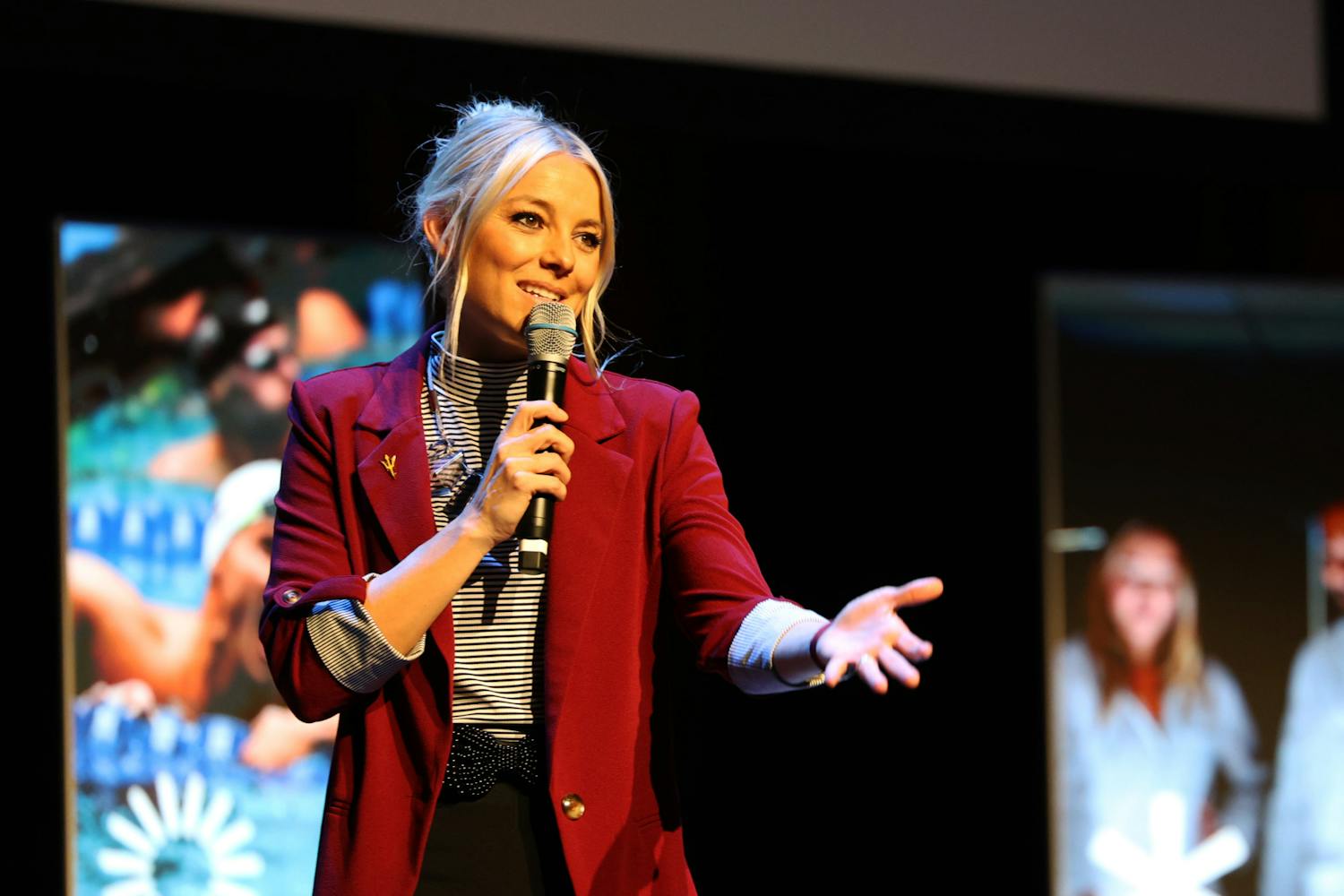ASU's research professors have found that social relationships among family and friends plays a role with a student's mood during the transition to college.
Phuong Thao Ha, an assistant professor of psychology, is the senior author on the Support for Success Initiative for Students Transitioning to College study, which was a collaboration among REACH, ASU Educational Outreach & Student Services and the Department of Psychology.
The study collected data through brief surveys of ASU students in the midst of transitioning from high school to college.
“We investigated (ASU students') negative and positive emotions," she said. "We found that positive emotions decreased after the transition to college, and negative emotions kind of stayed the same and were low.”
Ha said she found the most important aspect of the study to be the relationships with friends and parent, adding that the findings proved that when a student has healthy and supportive relationships with these people, it benefits their mood.
"We found that when students reported to have conflicts or felt pressure, especially with parents but also with friends, they reported higher levels of negative effects, especially after transition to college," she said.
Ha, along with other scientists, conducted the study because they recognized students struggling through this transition due to their mood.
"To support the Student Services here in ASU, we wanted to investigate the mechanisms a little bit better, so we could help them with developing better policies on campus," Ha said.
Additionally, the researchers wanted to underline the reasons for why students' moods were decreasing.
"The counseling services have done one really big thing (which is) trying to get parents more involved in the transition to college," Ha said.
Currently, the researchers are currently testing the effectiveness of an online intervention program for parents to communicate with their child and support them throughout the transition to college.
Aaron Krasnow, the associate vice president and director of ASU Counseling Services, said the study has impacted the way ASU helps prepare its students for the transition to college.
Krasow said the researchers and other ASU officials have used the study's findings to rework student orientations in order to discuss "certain ways that families talk, make plans, stay in touch during the transition that would likely lead to better outcomes for the students in the relation to stress, substance abuse and peer relationships."
First-year students at ASU typically reside in on-campus residence halls in order to be in a social context where they can meet new people and make connections, Krasnow said.
"What is recommended for most people is to find as many as people possible to meet the needs that you have," he said, adding that the University "gives numerous platforms for engagements for both inside and outside the classrooms."
Krasnow said there are ways for students to achieve more positive relationships, and students should take the time to figure out what makes them happy in relationships.
“It starts with understanding yourself well enough to know what makes you happy," Krasnow said.
Samantha Velazquez, a junior studying criminology and criminal justice said relationships are very important to her.
"I think it is important to have those relationships just as a college student, to get away from school," Velazquez said. "If you are stressed out then you can turn toward your family and friends to take your mind off of how stressful school is and to just ease up."
Mariah Bacon, a freshman majoring in medical studies and health solutions, said receiving letters from family and friends helps makes her time at ASU more enjoyable.
"I feel like if you don't have social relationships with your friends and parents in college you won't be as happy," she said. "You won't enjoy college as much."
Ananay Arora, a freshman studying computer science, said his family is all the way in India, and while this doesn't affect his mood, he said he does find social relationships important in his life.
"I feel it's okay because when my family is not there, not available, I have my friends, and when my friends aren't there, I have my family, so it all balances out," Arora said.
Reach the reporter at ddudurka@asu.edu and on Twitter @DianaPress55.
Like State Press on Facebook and follow @statepress on Twitter.




